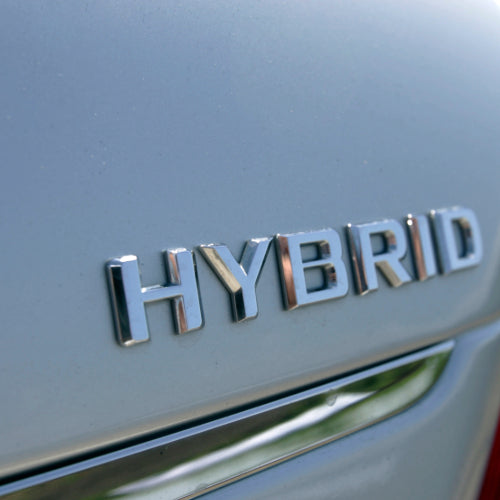
Are Electric Vehicles More Expensive to Insure?
What you should know before making the switch.

Why Electric Vehicles May Cost More
Electric vehicles typically cost more to insure than traditional gas-powered cars. That’s mainly due to two reasons: higher repair costs and the complexity of EV components.
1. Expensive Repairs: The battery is the most significant cost factor in an EV. If it's damaged in an accident, replacement can range from $4,000 to $20,000, depending on the make and model. In comparison, replacing a battery in a gas-powered vehicle often costs just a couple hundred dollars.
2. Fewer Specialized Repair Shops: Not every auto repair shop is equipped to handle electric vehicles. Repairs may need to be done by specialized technicians, which can drive up labor costs and time.

What About Hybrid Vehicles?
Hybrid vehicles generally cost less than fully electric cars, but they can still be more expensive to insure than standard gas models.
Their smaller batteries and advanced systems still require specialized care, which can increase overall insurance premiums.

Are There Discounts for Electric or Hybrid Cars?
While not all insurance providers offer specific discounts for EVs or hybrids, many companies offer savings for things like safe driving, bundling policies, and low mileage, which EV owners often benefit from.
It’s a good idea to ask about available discounts when requesting a quote.

How To Lower Electric Vehicle Insurance Costs
If you own an EV or are thinking about buying one, here are some ways to help reduce your insurance premium:
- Maintain a clean driving record
- Bundle auto with home or renters insurance
- Use telematics or usage-based programs (if available)
- Ask about multi-policy or multi-vehicle discounts
- Consider raising your deductible, just be sure it's an amount you're comfortable paying if needed

Final Thoughts
Electric vehicles may cost a bit more to insure today, but as EV technology becomes more mainstream and repair networks expand across the country, insurance rates are likely to even out. In the meantime, the savings on fuel, lower maintenance costs, and potential tax incentives can help offset the difference.
Whether you drive a gas-powered truck or a sleek electric SUV, it’s important to shop around and compare coverage options to find the best fit for your needs and budget.
We’re here to help you choose the right coverage to keep you moving, no matter what happens.
Contact us today to discuss your insurance needs.
Texas Auto Insurance
View all-

Car Insurance in San Antonio, TX
Searching for the best car insurance in San Antonio? Whether you're a new driver or just shopping for a better rate, get the best rate from a local agency that...
Car Insurance in San Antonio, TX
Searching for the best car insurance in San Antonio? Whether you're a new driver or just shopping for a better rate, get the best rate from a local agency that...
-

How Long Can I Stay on My Parents' Car Insurance?
In Texas, you can stay on your parents' car insurance if you live at home or attend college full-time. Learn when you’ll need your own policy and how to stay...
How Long Can I Stay on My Parents' Car Insurance?
In Texas, you can stay on your parents' car insurance if you live at home or attend college full-time. Learn when you’ll need your own policy and how to stay...
-

What is an SR-22 in Texas?
Looking for SR-22 insurance in Texas? Learn who needs it, how to file, what it costs, and how it affects your rates. Get the facts about Texas SR-22 requirements.
What is an SR-22 in Texas?
Looking for SR-22 insurance in Texas? Learn who needs it, how to file, what it costs, and how it affects your rates. Get the facts about Texas SR-22 requirements.
* Disclaimer: The information provided on this website is for general informational purposes only and does not constitute legal, financial, or insurance advice. Coverage options, terms, conditions, and exclusions vary based on individual circumstances and the policies issued. For specific details about your coverage, please refer to your policy documents or consult with a licensed insurance agent. Insurance Select is not responsible for any errors or omissions in the information provided or any actions taken based on it.



